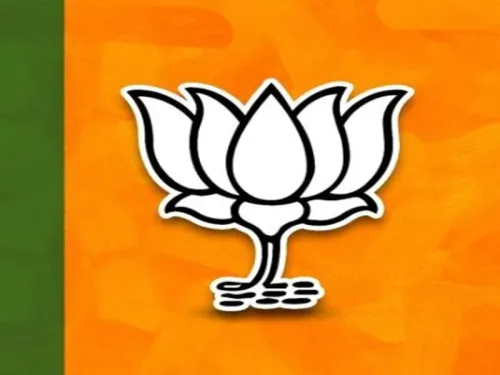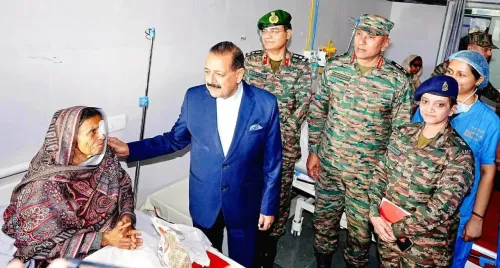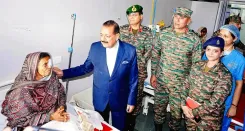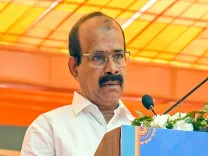Chennai Police Initiate Ban on Grindr App Tied to Drug Trafficking
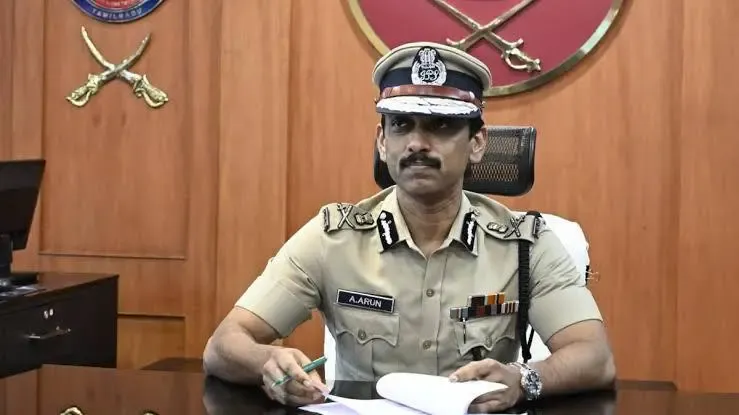
Synopsis
Key Takeaways
- Chennai Police are targeting Grindr over drug trafficking links.
- Significant drug seizures occurred, totaling 21.9 kg of methamphetamine.
- Eight foreign nationals were arrested, linked to an international drug network.
- Investigations are ongoing to uncover supply chains and storage locations.
- Authorities are exploring visa violations among suspects.
Chennai, April 10 (NationPress) The Commissioner of Police, A. Arun, has taken steps to potentially suspend or prohibit Grindr, a widely-used dating and social networking app aimed at the LGBTQ+ community, following an investigation that suggested its use as a channel for synthetic drug trafficking.
The Commissioner has reached out to the Indian Computer Emergency Response Team (CERT-In), which is responsible for cybersecurity incidents in the nation, seeking regulatory action against the international platform.
According to a senior police official, “In five out of ten recent drug cases, Grindr was identified as the medium through which traffickers communicated with clients.”
P. Vijayakumar, Joint Commissioner of Police (East), underscored the commitment of Greater Chennai Police to combat narcotics, especially synthetic drugs.
He highlighted the significant strides made by the Anti-Narcotics Intelligence Unit (ANIU), established in August 2024.
Data from officials indicated that the Chennai Police have confiscated 21.9 kg of methamphetamine over the past eight months. Recent major drug seizures in the Anna Salai and Triplicane regions resulted in the arrest of eight foreign nationals—seven from Nigeria and one from Sudan—who are suspected to be linked to an international drug syndicate.
Joint Commissioner stated, “Most of the synthetic drugs circulating in the city are sourced from other states.”
Follow-up investigations in Bengaluru and other areas have aided police in capturing the foreign nationals involved in the Chennai drug operations. To date, 17 individuals have been detained in the two cases—seven from Tamil Nadu, along with others from various Indian states and foreign nations.
Confiscated items from these operations include 36.5 grams of methamphetamine, two grams of heroin, 5.3 grams of high-grade ganja (OG), and other narcotics.
The police are also collaborating with immigration and intelligence agencies to probe potential visa violations committed by the foreign suspects.
One officer stated, “We will recommend further action if these individuals are found guilty of overstaying or misusing their visas.”
Authorities are seeking custody of the detained suspects for further questioning. Investigators aim to unveil the supply chains, storage locations, and other individuals involved in the drug network.
Preliminary findings indicate that some narcotics may have originated from Myanmar, while several suspects claim their suppliers are based in Nigeria.
The detained foreign nationals have been identified as Christopher Oluchukwa, Samir Salah Nouraldeen, Etim Antigha, Effiong Etim, Sheu Adeleke, Chigemezel Nwune, Ogoegbunem, and Benard Oknkwo Juel.
As investigations progress, the Greater Chennai Police are amplifying their efforts against synthetic drugs and are examining digital and international channels used by traffickers targeting local consumers.

